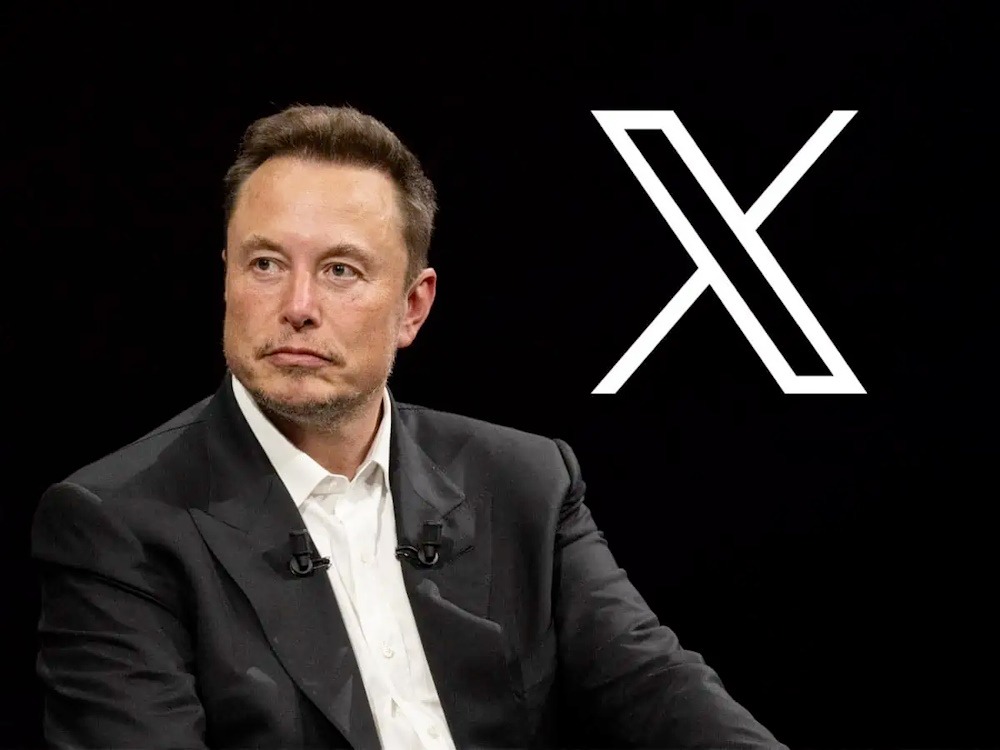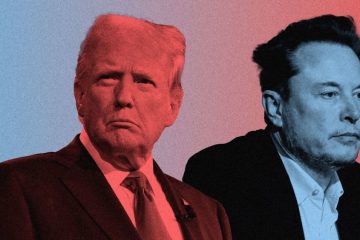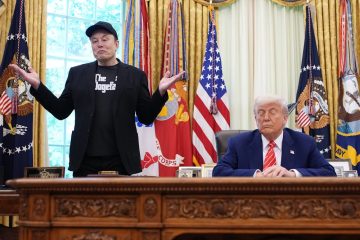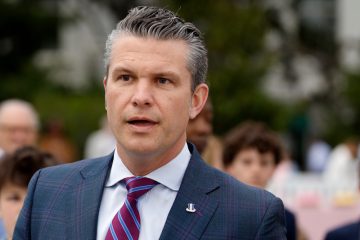Elon Musk is causing political unrest in Europe

Elon Musk is disrupting Europe’s political landscape with provocative stances on immigration and free speech, presenting a challenge for governments as they navigate their responses to the tech billionaire and influential figure in the forthcoming Trump administration. In recent days and weeks, Musk has engaged in a series of provocative social-media posts concerning European politics, including endorsing a far-right party in the lead-up to an election in Germany, alleging that the British prime minister is complicit in rape, criticizing judges in Italy, and attacking the European Commission.
The barrage of communications from the globe’s wealthiest individual has evolved into a diplomatic quandary, leaving numerous established European political factions in a reactive position. In the weeks leading up to Donald Trump’s inauguration, numerous European leaders have exhibited caution in openly criticizing Musk, concerned that such actions might jeopardize their rapport with Trump and inadvertently provoke the tech mogul to intensify his confrontat ional stance. The frequent updates to his 211 million followers on X, the social media platform under his ownership, are increasingly shaping the news narrative across various nations, rendering them impossible to overlook. Leaders across Europe, facing unpopularity, are increasingly concerned that Musk might leverage X to galvanize disillusioned voters. This apprehension arises amid a backdrop of sluggish economic growth, which has undermined confidence in established political structures and heightened the risk of instability.
“A decade past, it would have been difficult to conceive that the proprietor of one of the globe’s largest social-media enterprises would endorse a nascent international reactionary movement and directly influence electoral processes, notably in Germany.” On Monday, French President Emmanuel Macron addressed ambassadors. Musk’s unvarnished strategy in international relations underscores the difficulties that American allies will encounter in maneuvering through a potential second Trump administration. During Trump’s previous tenure in the White House, foreign governments faced the challenge of navigating his erratic late-night social media pronouncements. Now they must also assimilate Musk’s insights.
During a press conference on Monday, intended to address the pressing issues of Britain’s overstretched health system, Prime Minister Keir Starmer devoted a significant portion of his remarks to countering Elon Musk’s assertions regarding his record on prosecuting child rapists from his time as the U.K.’s chief prosecutor more than a decade ago. Starmer asserted that he would refrain from personalizing the issue to Elon Musk or any other individual, yet he dedicated several minutes to defending his own record while condemning those who disseminate lies and misinformation extensively. Prior to Starmer’s press conference, Musk prominently featured a message on his X feed: “America should liberate the people of Britain from their tyrannical government.” Starmer refrained from offering any remarks on the matter.
European politicians and business leaders frequently express their views on U.S. politics—often in critique of Trump—yet their impact on American voters remains minimal. Political strategists express conc ern that Musk may leverage his X platform to influence the electoral landscape in favor of the parties he supports. In Germany, there are concerns among strategists and politicians that Musk’s personal opinions may sway the outcome of the upcoming general election in February. Last year, Musk referred to German Chancellor Olaf Scholz as a “fool,” and in recent weeks, he has expressed support for Germany’s far-right AfD party. This week, he will conduct a live chat on X featuring AfD co-chair Alice Weidel and has penned an op-ed in a leading German newspaper, describing her party as “the last spark of hope for this country.”
Alice Weidel serves as the co-leader of the far-right Alternative for Germany party (AfD), which has proposed a draft election platform advocating for the nation’s exit from the EU. The AfD occupies a more extreme position on the right than the majority of similar anti-establishment, anti-immigration parties across Europe. Germany’s domestic intelligence agency has designated certain regional chapters of the AfD as extremist organizations. The party’s proposed electoral platform advocates for the removal of sanctions on Russia, the liberation of Germany’s foreign and energy policy from American influences, and a withdrawal from the EU. Certain leaders within the party have expressed criticism regarding Germany’s approach to Holocaust remembrance.
Musk’s endorsement is viewed as a timely counter to the ongoing negative campaign against us in Germany and has the potential to be a significant turning point, remarked Leif-Erik Holm, a senior lawmaker from the AfD. Friedrich Merz, the chairman of the center-right CDU and, as per recent polls, the frontrunner for the upcoming February election, characterized Musk’s involvement as “intrusive and presumptuous.” He further remarked, “I cannot recall a comparable instance of interference in the electoral process of a friendly nation within the annals of Western democracies.”
Steve Bannon, the former strategist for Trump, endeavored to establish a coalition of right-wing parties in anticipation of the 2019 EU parliamentary elections, though his efforts yielded minimal impact. According to José Ignacio Torreblanca, a senior policy fellow at the European Council on Foreign Relations, Musk’s emphasis on domestic European elections, coupled with his ownership of a social-media platform, may enhance his prospects for success. “He perceives himself as a guardian of American democracy against the encroachments of progressivism,” Torreblanca remarked. “He believes this should extend beyond national borders and continue throughout Europe.”
Nevertheless, obstacles remain. In Britain, only 26% of the population holds a favorable opinion of Musk, a figure that aligns with that of Starmer, as reported by YouGov. Furthermore, the average daily users of X have seen a decline from 10.3 million in May 2022 to 8.6 million in May 2024, according to data from the regulator Ofcom. X’s data indicates a decline of approximately 5 million in the average number of active users across the EU from October 2023 to the summer of 2024.
The European Commission, the executive arm of the bloc, announced on Monday that it is contemplating an expansion of its ongoing investigation into X to encompass the livestream hosted by Musk featuring Germany’s AfD. “You are entitled to articulate your opinions; however, there are specific boundaries to consider,” stated commission spokesman Thomas Regnier during a press briefing on Monday. Musk has indicated his intention to contest any EU findings against X in a legal setting. The Digital Services Act of the European Union empowers the commission to impose fines reaching as high as 6% of a company’s global revenue.
Considering Musk’s management of approximately six enterprises, including SpaceX and Tesla, alongside his role as co-chair of a newly established U.S. Department of Government Efficiency, certain European officials conve y their disbelief regarding his capacity to devote significant attention to the domestic matters of their nations. In Germany, Daniel Tapp, the spokesperson for Weidel, indicated that the party had engaged with Musk’s team as early as prior to the European elections last summer, following a request for documents pertaining to the AfD platform. He noted that the endorsement in December was unexpected.
Musk has notably focused his attention on Britain. The X feed over the weekend featured a significant number of posts condemning Starmer for his perceived inaction regarding the prosecution of gangs predominantly composed of Muslim men of Pakistani descent, who have been implicated in the grooming and sexual abuse of over a thousand young girls in various towns across Britain, a scandal that has persisted for more than a decade. Independent assessments have condemned British police for neglecting the issue of gangs, attributing this to a lack of belief in the victims’ accounts and a reluctance among officers to confront individuals from minority backgrounds due to concerns over potential accusations of racism.
Starmer asserts that during his tenure as chief prosecutor, he revisited numerous previously closed cases associated with child grooming rings and reformed the prosecution methods for such offenses. Musk has consistently advocated for the release of Tommy Robinson, a far-right activist presently incarcerated in a British prison for contempt of court due to his reiteration of a false allegation against a Syrian refugee. Musk experienced a rift with Nigel Farage, the populist figurehead of the right-wing Reform party, following Farage’s declaration that he would not endorse Robinson’s membership in Reform.
Conversely, Italian Prime Minister Giorgia Meloni stands out as one of the rare Western European leaders who has garnered Musk’s admiration. The two have convened on multiple occasions since Meloni ascended to power in late 2022. The Italian right-wing leader exhibits a greater alignment than many of her European counterparts with Musk’s views on immigration, declining birthrates, and the concept of “wokeism.” In a recent interview with Corriere della Sera, Meloni remarked that although she occasionally finds herself at odds with Musk, she finds it amusing how individuals who previously lauded him as a visionary now portray him as a villain, simply due to his alignment with what is perceived as the ‘wrong’ side of the debate.









